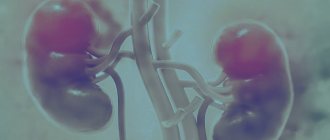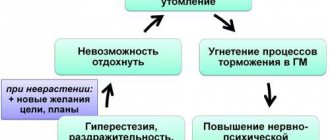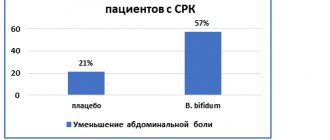: Reading time:
August is the month when members of the armed forces celebrate several professional holidays. Many media outlets focus specifically on how the military celebrates its holidays. We would like to talk about a problem that many of them face, and for which they rarely receive qualified treatment - post-traumatic stress disorder.
Post-traumatic stress disorder (PTSD) is a psychological problem faced by people who have experienced events that are beyond normal life experience: military action, a natural disaster, a serious car or plane accident, sexual violence, cruelty.
Methods of psychological and medical assistance to people with this disorder first began to be developed in the United States after the Vietnam War. Then many men returned to the country who had lost comrades, seen death and cruelty, survived captivity, and received physical injuries. They had difficulty adapting to everyday life, their families fell apart, and they began to abuse alcohol and drugs.
Although military exposure is one of the most common causes of PTSD, there are others. The military is reluctant to share their experiences, so we are publishing the girl’s experiences - her disorder arose in response to psychological trauma, the mental disorder of loved ones. But the manifestations of PTSD in all people will be the same:
My trauma occurred a long time ago, back in childhood. I grew up in St. Petersburg with my mother and grandmother. They are both sick: my grandmother has schizophrenia, and my mother has schizoaffective disorder. At first everything was fine, but since no one treated them, over time they only got worse. Their condition greatly influenced my life, although I did not realize it: the older I got, the more the disease of my mother and grandmother progressed. My PTSD is the result of years of living with people with serious disorders.
Lyubov Melnikova, interview with Wonderzine magazine
What are the symptoms of PTSD?
Every person experiences nightmares, unpleasant thoughts, and memories of difficult events in the past. Is this PTSD?
Reliving a traumatic event
In cases of PTSD, memories, thoughts, and images come in the form of flashbacks. They feel much more real than ordinary memories - a person often perceives them as reality. Some experts classify flashbacks as episodes of confusion. They can be triggered by an event in the present tense: for example, the sound of firecrackers or the rumble of a truck can trigger a flashback to military action in a former soldier.
Many people say that PTSD is about flashbacks. It's true, and it's very unpleasant. A flashback can be caused by anything: for example, you go to the store, and something - color or light - throws you back, you stand with a pack of pasta in your hands and feel horror, having “failed” into the past. These are very vivid, rich memories, as if you are reliving a moment from the past.
Lyubov Melnikova, interview with Wonderzine magazine
Avoidance
Since flashbacks are very painful for a person, he will try to avoid events, situations, people, things that can cause them. For example, a soldier avoids crowded places. The person will also avoid obsessive thoughts about the event, for example by overburdening themselves with work and responsibilities.
In difficult times, I worked without breaks - for example, I replaced colleagues on weekends. At home I only slept, and I didn’t have a home as such - I moved around all the time. Even now, all my things fit into four boxes and a suitcase, and only now am I starting to get used to the fact that home is the place where I feel good and calm.
Lyubov Melnikova, interview with Wonderzine magazine
Negativism
Compared to how the person was before the injury, he will report that he has become more “negative.” Often people report that they have more negative thoughts or images in their minds, and they often feel emotionally worse than before. The following experiences are typical for military personnel:
- emotional deadness - what previously caused emotions now does not cause any reaction;
- shame and guilt that something happened to his colleagues that he could have prevented (from his point of view);
- anxiety and fear due to the feeling that the world and the people in it are dangerous and unreliable.
Hypersensitivity
People with PTSD are always “on guard”, do not find a place, are always waiting. This leads to problems with concentration, rapid emergence of anger and aggression, and exhaustion.
Other mental disorders
People with PTSD develop other problems: depression, alcoholism and drug addiction, self-harmful behavior, aggression towards others, and suicidal behavior.
I started taking drugs, trying to get away from the problem, then, when I stopped taking them, I drank heavily. Then there was a toxic relationship. Then there was an eating disorder. All this self-destruction was an attempt to stop thinking about the suffering that my daily life caused me.
Lyubov Melnikova, interview with Wonderzine magazine
PTSD: why is veterans’ disease diagnosed in young people?
“I dream that you sleep on corpses”
Shortly before the end of the First Chechen War, Maxim Kutuzov, a young law enforcement officer, was sent on a business trip to Grozny. Then, in August 1996, the young man was 21 years old, he had just returned from the army and got a job in a special police unit. Shortly before the end of the war, militants again captured the capital of Chechnya, and Russian units were surrounded. The soldiers were running out of ammunition, food, and water, but there was no way to deliver them. Maxim Kutuzov also ended up at one of these checkpoints.
“We were surrounded for two weeks. There were enemies around us, there were constant daily battles. There was practically no opportunity to rest due to day and night shelling. Wounded soldiers... There were explosions whistling overhead and the crackle of weapons, naturally. There’s a constant roar because your comrades are shooting next to you,” the former military man told AIDS.CENTER.
The checkpoint is a space of 25 by 10 meters, fenced with concrete blocks, an embankment and surrounded by trenches. The soldiers lived in a trailer located inside this “fortress”, and their task was not to allow illegal formations and cargo to pass through. When the militants blocked the roads, a small detachment of twenty people had to hold back the advance. For Maxim Kutuzov, the war ended with shell shock.
Getting used to peaceful life turned out to be difficult. There was a “slightly devil-may-care attitude towards life,” as a former military man put it. Like many, he began to drink, alcohol triggered memories, and he began to have terrible dreams about the war. But gradually what happened began to be forgotten, and during the Second Chechen campaign, Kutuzov was again sent on a business trip. This time it was easier: I already knew and was able to do more. In total, he spent about a year in the war.
The consequences of the stress I experienced began to affect me closer to the age of forty. First of all, in the form of nightmares. “[You dream that] you are either at war or returning from it. Naturally, you remember what happened directly in the unit. The checkpoint is being attacked or we are walking through Grozny. Some things are purely military, for example, cleansing. Or for some reason you find yourself alone in Grozny, trying to somehow get out of there. Either you’re sitting in an ambush, or you’re taking part in a firefight,” Maxim shared.
Everyday life has also changed. Sometimes it happened that a former military man came to the hairdresser and almost ran out of there. I felt scared for no reason, I felt dizzy almost to the point of losing consciousness, and it was impossible to sit still. He did not immediately learn that this was called a panic attack. Before he was diagnosed with PTSD and its accompanying anxiety disorder, he saw many doctors.
Maxim Kutuzov.
Now Maxim Kutuzov is 45 years old, he has retired from the military. He is regularly seen by a psychiatrist and takes antidepressants. He wants to stop taking pills over time, but as soon as he tries to finish drug therapy, he gets worse. Without medication, he can spend whole days at home and not find the strength to go outside. Sport helps maintain self-confidence, but it does not save you from the physiological manifestations of the disease. It is also impossible to work constantly due to PTSD.
“Military” and “civilian” PTSD: is there a difference?
The term PTSD first appeared during the Vietnam War and was initially diagnosed in soldiers returning from combat zones. The mental state of former military personnel had been studied before, but it was in 1968 that this diagnosis was included in the Diagnostic and Statistical Manual of Mental Disorders (DSM). Afterwards it was included in the International Classification of Diseases (ICD).
The disorder cannot be considered something new, since some of its symptoms were described back in the days of Ancient Rome, explains Anastasia Afanasyeva, a psychotherapist at the Mental Health Center clinic, in a conversation with AIDS.CENTER. But until the 20th century, there was no need to distinguish PTSD as a separate disease. Symptoms of the disorder are described in ICD-10 and DSM-5, but the most characteristic are the occurrence of nightmares and flashbacks, avoidance of events reminiscent of trauma, and dissociation.
“[The onset of PTSD] is associated with a severe traumatic event. It affects a person so strongly that the neurobiology in the brain changes. That is, even memory consolidation will be impaired, which is why people with post-traumatic stress disorder may often complain of flashbacks - pictures that will pop up before their eyes. But there will never be such a video sequence as is sometimes shown in films. Usually these are scattered pictures in which there is no flow in time,” Afanasyeva explained.
A traumatic event can include participation in hostilities, natural or man-made disasters, rape, or even violence during childbirth. It is important to understand that PTSD does not develop immediately and not for everyone, the expert added. Predispositions will include, among others, experiences of depression and childhood abuse. Sometimes symptoms may go away on their own.
People with PTSD do not always understand that something “wrong” is happening to them, especially when they have been living with it for years. “Disturbances in mood, sleep, some kind of irritability, fearfulness begin to become so intertwined with the character that the person believes that he has always been like this. It's just his character. But in fact, these may already be symptoms of PTSD,” commented Afanasyeva.
There is no formal distinction between “military” and “civilian” PTSD, she said. There is no such division in the International Classification of Diseases, since the nature of the disorder is not important for diagnosis. The only difference will be in what a person will see in flashbacks and nightmares: scenes from a battlefield or, for example, a street attack.
The modern classification also includes complex post-traumatic stress disorder, a type of PTSD that develops after chronic exposure to traumatic episodes. In particular, it can occur in children who grew up in alcoholic families and who were often beaten. The second option is when a person was repeatedly raped.
“I don’t see a future for myself”
Christina experienced sexual abuse from her brother at the age of nine or ten. She doesn’t remember her exact age: her memories were erased both because of how long ago the incident happened (she is now 37) and because of the characteristics of PTSD. People with this disorder often forget the details of traumatic events - this is a defensive reaction of the psyche. What Christina remembers is her older brother touching her and rubbing his genitals.
“He presented it all as a game. And since I didn’t understand what was happening, I thought that big brother couldn’t do anything wrong. And basically, at nine years old, a child does not know what sex is,” says Christina. Everything went on for a year, and the children’s parents did not suspect anything. As a result, the girl closed herself off, did not go for walks, and reacted sharply to her mother and father’s comments.
Kristinina's parents attributed her communication problems to her personality traits. They continued to think this way when their daughter grew up. Due to a strong feeling of guilt, self-esteem has decreased, and even as an adult, Christina cannot fully realize herself, although those around her see potential in her. Close relationships are still difficult.
“I’m 37 now. It’s very difficult for me to get along with people. I have practically no friends, no relationships, no family. I can't communicate with my relatives, I can't communicate with men. Because as soon as it comes to sex, I start to cry,” said Christina.
A year ago, the symptoms of PTSD began to manifest themselves especially strongly. Flashbacks and nightmares appeared. She constantly dreamed that someone was beating her, raping her, or dragging her somewhere. Christina stopped sleeping. And when in reality, acquaintances touched upon topics that were painful for her, images of the violence she experienced many years ago arose before her eyes. She felt the same as she did as a nine-year-old child. In addition, suicidal thoughts appeared.
Then, at the end of 2022, Christina turned to a psychologist, who suspected she had PTSD and advised her to see a psychiatrist. The diagnosis was confirmed, and the girl was prescribed several types of medications. Thanks to pills and psychotherapy, Christina felt much better. Due to the fact that she turned to a specialist very late, the disorder became incurable. Therefore, periods of remission will still alternate with exacerbations.
Christina.
“I won’t say that I felt super good. When remission happens, then yes, then it’s great. But this happens, in fact, very rarely. If you don’t want to kill yourself and don’t make plans about it during suicidal depression, then this is just existence. You just live, and there is no joy in life. There are very, very few moments of joy; they can be periodically ticked off on the calendar,” explained Christina. In an attempt to improve her emotional state, the girl discovered travel, but in general she does not see a future for herself.
Grieve and process trauma
The sooner a person turns to a psychologist, the lower the likelihood of developing PTSD. However, this does not exclude it 100%, since both the depth of trauma and mental characteristics influence it. “Work in the early stages is based on actively experiencing grief. That is, they help a person to grieve the moments that happened. [It is] necessary to restore basic security needs. Create a safe physical environment. To work through the traumatic experience so that the psyche does not become fixated on it,” commented Anastasia Afanasyeva.
In emergency situations, help begins to help a person almost immediately. This is the principle used by psychological services that go to the sites of terrorist attacks or disasters. Such specialists begin work during events or immediately after their completion. As the expert explained, there is no need to wait for some time so that, for example, a person comes out of an acute state of shock.
After a traumatic event, adjustment disorder may occur. In this case, a person has problems sleeping, constant anxiety, a feeling of insecurity, and depressive reactions. This can continue for two to three months. If the symptoms persist for a long period, we are talking about PTSD. According to ICD-10, this disorder is diagnosed if symptoms persist for more than six months.
Anastasia Afanasyeva emphasized that PTSD itself cannot be called a chronic disease, since it can be cured. However, in some cases it remains for life. PTSD can also be accompanied by other disorders: for example, anxiety or depression. This is due to the individual reaction of the body to injury.
Treatment for post-traumatic stress disorder is complex. “You need to understand that drugs can stabilize sleep, eliminate irritability and low mood,” the expert said. “But the pill is not able to completely cure the replay of traumatic events. Therefore, a mandatory component is psychotherapy. To teach how to survive this experience, to teach how to cope with it. Make sure that it does not control human behavior and perception of the world around us.”
Is PTSD treatable?
It is not worth making a diagnosis based on one description. But if most of the above symptoms are similar to what you or a loved one are experiencing, you should contact a psychologist or psychotherapist and get a specialist opinion.
Research shows that without treatment, PTSD not only does not go away, but gets worse, including due to secondary problems. Therefore, the best thing you can do is to find a qualified psychotherapist who works with this problem and enlist his support.
Psychotherapeutic (eg, prolonged exposure, EMDR, cognitive therapy) and drug approaches to rehabilitation (eg, SSRIs, the latest generation of antidepressants) have been developed.









